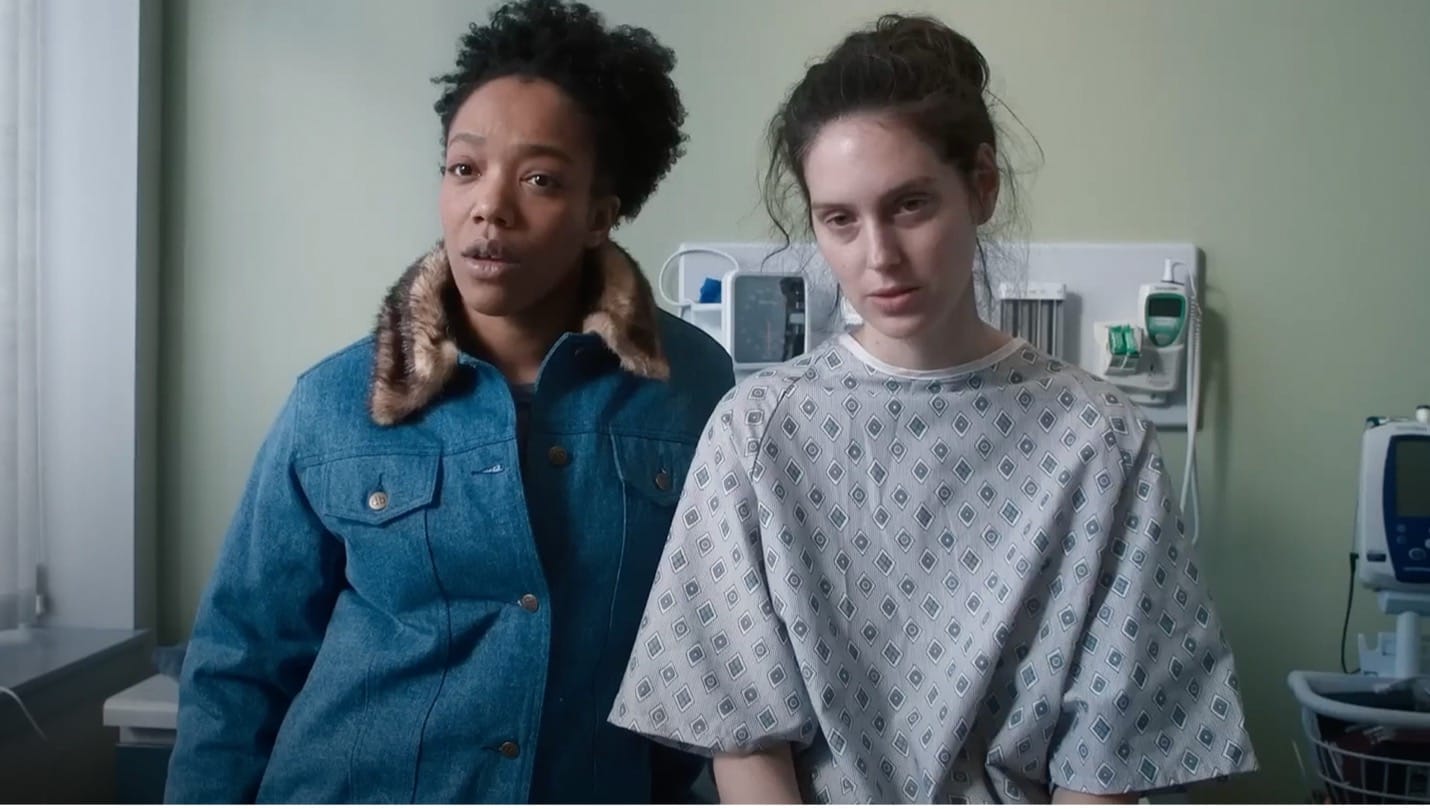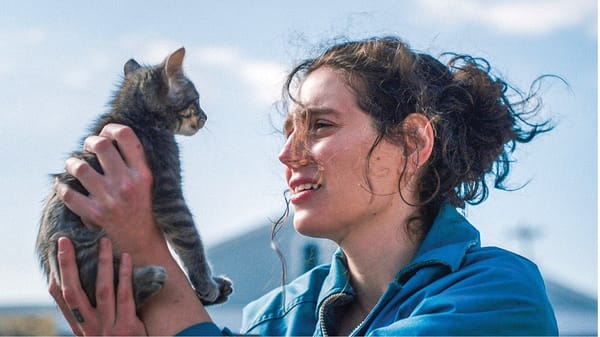★★★★ (4 out of 4)
Though this stunning debut feature from writer-director-star Eva Victor stays small in size, it has the power to sneak up and floor you. The title alone, “Sorry, Baby,” seems apologetic about itself. It's as if she was saying, please don’t make a fuss at January’s Sundance Film Festival, where she debuted to raves. Victor won the prestigious Waldo Salt Award for screenwriting and the Grand Jury prize in the U.S. dramatic competition. Add to that $8 million from A24, the gold standard for indie studios with a roster including “Lady Bird,” “Uncut Gems,” “Hereditary” and the Oscar winners “Moonlight” and “Everything Everywhere All at Once.”
How do you stay small after that? You don’t, especially after “Sorry, Baby” opens in limited released on June 27, going nationwide afterwards on July 18. And by the way,who is this Eva Victor? Fair question. Best known for her viral comic videos (they’re hilarious), Victor had a feeling during the pandemic that she might have the makings of a personal film, specific to her but universal in its reach, that would only gradually reveal a trauma at its core.
Victor wanted us to get to know her characters first. “Sorry, Baby” jumps in and out of five years in the life of Agnes, a New England academic not given to the somber, snoozy details common to heavier Sundance fare. Agnes knows how to laugh off the envious Natasha (a killer funny Kelly McCormack), who resents her for landing the teacher’s job Natasha wanted. “She’s the youngest in 50 years, that bitch,” says Natasha, while Agnes gloats.
And yet the first image of “Sorry, Baby,” a long-distance shot of a house on a quiet street, suggests that something harrowing is happening inside, leading to the “The Year of the Bad Thing,” one of the mystery chapter headings Victor supplies for her movie.
“Newbie director-writer-star Eva Victor has the artist’s gift for accumulating small details into a full-scale human portrait that takes a piece out of you. And that’s what the funny, touching and vital 'Sorry, Baby' delivers. I’d dub that 'The Year of the Talent to Watch.'”
Victor never expressly shows us that scene of sexual assault, committed by a married teacher, a trusted faculty advisor played with charm and smarm by Louis Cancelmi. We see only a breathless Agnes escaping through an open door into a life forever altered, her actions marking the before and after of her experience. And Victor, showing remarkable restraint as a first-time filmmaker, stays alert to every nuance. Lucky for us, Victor’s offhand, oddball humor never fails her, as when she asks the local sandwich guy (a lovely John Carroll Lynch) how long it takes to recover from trauma. She dubs that “The Year of the Good Sandwich.”

Eva and Agnes (they both use the pronouns she/they) reach a breakthrough when Agnes reveals her secret to her closest friend Lydie, beautifully played by Naomi Ackie, best known for her searing portrayal of Whitney Houston in “I Wanna Dance With Somebody.” Lydie, with her own life and family back in Manhattan, and Agnes, call to mind that famous Stephen Sondheim song about “one who keeps tearing around and one who can’t move.” We know which one Agnes is, and so does she. But Victor plays her without a trace of whining self pity, her caustic humor ever at the ready to ward off sloppy sentiment. Though Victor does not need our tears, understanding surely wouldn’t hurt.
Agnes is hardly a recluse, at least inside the confines of the small town she can’t find the courage to leave. She finds time for a non-committal fling with a neighbor, acted with touching grace by Lucas Hedges. Still, the days of casual pickups seem far off for Agnes, except with a stray cat she finds prowling her neighborhood. The scene is remarkable for the emotional wounds it conveys under a bantering surface. “Want me to pick you up?” she asks, both purring when she does. “Yes, I love you,” says Agnes, easy as that, fully knowing relationships won’t be as easy as that for, well, only time will tell.
Life will go on for Agnes; it’s in the bones of the vital script Victor has carved out of her own DNA. The traditional Hollywood ending in which happiness is found in someone’s loving arms is not for Victor or anyone who respects the demands of a workable recovery process. Victor has the artist’s gift for accumulating small details into a full-scale human portrait that takes a piece out of you. And that’s what “Sorry, Baby” gloriously delivers. I’d dub that “The Year of the Talent to Watch.”

